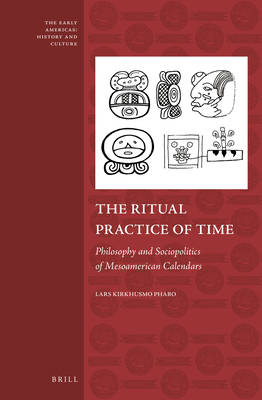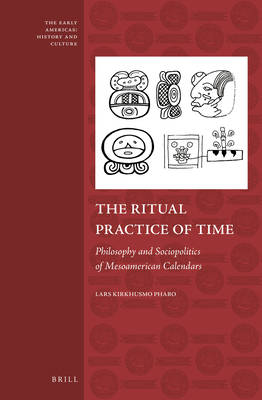
- Afhalen na 1 uur in een winkel met voorraad
- Gratis thuislevering in België vanaf € 30
- Ruim aanbod met 7 miljoen producten
- Afhalen na 1 uur in een winkel met voorraad
- Gratis thuislevering in België vanaf € 30
- Ruim aanbod met 7 miljoen producten
Zoeken
The Ritual Practice of Time
Philosophy and Sociopolitics of Mesoamerican Calendars
Lars Kirkhusmo Pharo
€ 294,95
+ 589 punten
Omschrijving
Calendars of Mesoamerican civilisations are subjected to what is categorised as "ritual practices of time". This book is a comparative explication of rituals of time of four calendars: the Long Count calendar, the 260-day calendar, the 365-day calendar and the 52-years calendar. Building upon a comparative analytical model, the book contributes new theoretical insights about ritual practices and temporal philosophies. This comprehensive investigation analyses how ritual practices are represented and conceptualised in intellectual systems and societies. The temporal ritual practices are systematically analysed in relation to calendar organisation and structure, arithmetic, cosmogony and chronometry, spatial-temporality (cosmology), natural world, eschatology, sociology, politics, and ontology. It is argued that the 260-day calendar has a particular symbolic importance in Mesoamerican temporal philosophies and practices.
Specificaties
Betrokkenen
- Auteur(s):
- Uitgeverij:
Inhoud
- Aantal bladzijden:
- 432
- Taal:
- Engels
- Reeks:
- Reeksnummer:
- nr. 4
Eigenschappen
- Productcode (EAN):
- 9789004252356
- Verschijningsdatum:
- 2/12/2013
- Uitvoering:
- Hardcover
- Formaat:
- Genaaid
- Afmetingen:
- 163 mm x 240 mm
- Gewicht:
- 789 g

Alleen bij Standaard Boekhandel
+ 589 punten op je klantenkaart van Standaard Boekhandel
Beoordelingen
We publiceren alleen reviews die voldoen aan de voorwaarden voor reviews. Bekijk onze voorwaarden voor reviews.








